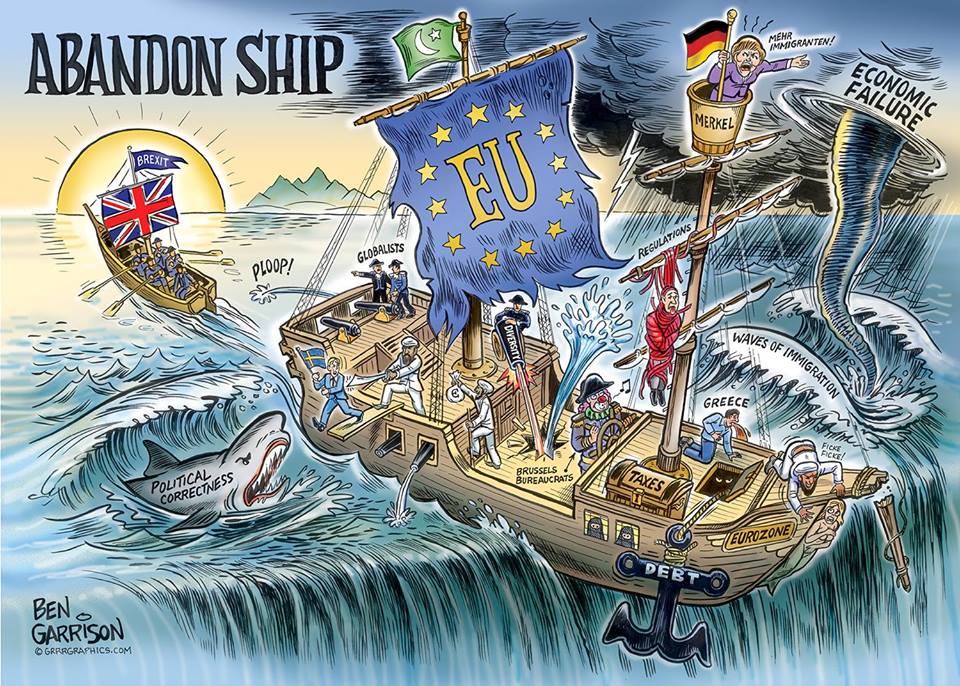Skotit takaisin
Brexit vie EU:sta melkein kaiken viskin ja suuren osan ydinaseista: Grafiikat kertovat, mitä kaikkea unionista lähtee Britannian mukana
EU menettää paljon, koska Britannia on ollut väkiluvultaan kolmanneksi suurin jäsenmaa.www.hs.fi
Hiton britit.
Install the app
How to install the app on iOS
Follow along with the video below to see how to install our site as a web app on your home screen.
Note: This feature may not be available in some browsers.
You are using an out of date browser. It may not display this or other websites correctly.
You should upgrade or use an alternative browser.
You should upgrade or use an alternative browser.
Brexit ja sen seuraukset
- Viestiketjun aloittaja trolli123
- Aloitus PVM
Britit on ollut Suomella pitkäaikainen kauppakumppani, oikeastaan jos venäjävallan ajoilta lähtien. Tuskinpa tähän tulee suuria muutoksia jatkossakaan, Suomi myy perinteisiä mentsäteollisuuden tuotteitaan Britanniaan kuten ennenkin.Pitäisi lopettaa valittelu Brexitistä ja toivoa että Iso-Britannia pysyy yhtenäisenä ja vahvistuu eron jälkeen. Suomelle - ja muille Pohjoismaille - vahva UK on suuri etu. Enkä tarkoita pelkästään kauppaa vaan turvallisuutta.
Sotilaallisesti ja turvallisuuspolitiikan osalta Suomi ei kuitenkaan ole koskaan ollut samanlaisessa asemassa kuin muut pohjoismaat, suhteessa Britanniaan.
Ruotsin, Tanskan ja erityisesti Norjan suhteet pohjautuvat pitkään, jo tuhatvuotisiin historiaan, osin jopa samanlaiseen vatiomuotoon (kuningaskuntia). Ne ovat olleet myös viimevuosadan sodissa samassa rintamassa. Eräissä tapauksissa jopa Suomen vastapuolella sekä vihollisina.
Historiallisesti Suomi on ollut Britannian näkökulmasta varsin kaukainen, merentakainen ja Venäjään kuuluva autonomia sekä tsaarivallan jälkeen puskurivyöhyke kommunistista Neuvostoliittoa vastaan. Turvallisuuspoliittisesti Suomen merkitys Britannialle olisi muuttunut tärkeämmäksi jos meillä olisi ymmärretty hankkiutua NATO:n jäseniksi samaan aikaan kuin Viro, Puola ja muut Baltian sekä Itä-Eruroopan entiset Neuvostiliiton alaiset valtiot. Tämä mahdollisuus menetettiin kotimaisten kommunistien, sosialistien ja Venäjän hännystelijöiden toimesta.
Brexitin johdosta EU:n jäsenmaiden keskeinen velvoite auttaa muita jäsenmaita käytännössä loppuu Britannian osalta. Tuskinpa Suomi kykenee neuvottelemaan mitään todellista kahdenkeskistä sotilaallista tms. sopimusta Suomen kanssa. Suomi muodostaa jo olemassa olollaan geopoliittisen puskurialueen Venäjän luoteisrajalle. Tähän tosiasiaan ei tarvita minkäänlaisia sitoumuksia Brittien puolelta. Ainoa todellinen parannus Suomen turvallisuuspoliittiseen asemaan olisi NATO:n jäsenyys. Ehkä voisimme saada Britannialta tukea puolustusliiton jäsenhakemukselle vaikka sekään ei liene ihan itsestään selvä juttu.
Hyvin todennäköisesti Britannia joutuu käsittelemään tulevaisuudessa omaan asemaansa liittyviä haasteita. Talousasioiden lisäksi myös esim. Skotlannin ja ehkä myös Pohjois-Irlannin erovaatimuksia. Näilläkin voi pitkässä juoksussa olla oma merkityksensä myös Suomen osalta. Esim. Tukeeko Suomi viimepeleissä Skotlannin mahdollista itsenäisyyttä? jne.
Jää nähtäväksi kuinka suuri hyöty Brittien EU-erosta koituu heille itselleen. Sehän tässä lienee keskeinen kysymys.
StepanRudanskij
Greatest Leader
Skotit takaisin
Ei se paljon auta. Skotit juo itse enemmän viskiä kuin tuottavat.
Solidsnake
Respected Leader
Britit voisi nimetä viskinsä konjakiksi, ranskalaisten iloksi
Coffee Man
Respected Leader
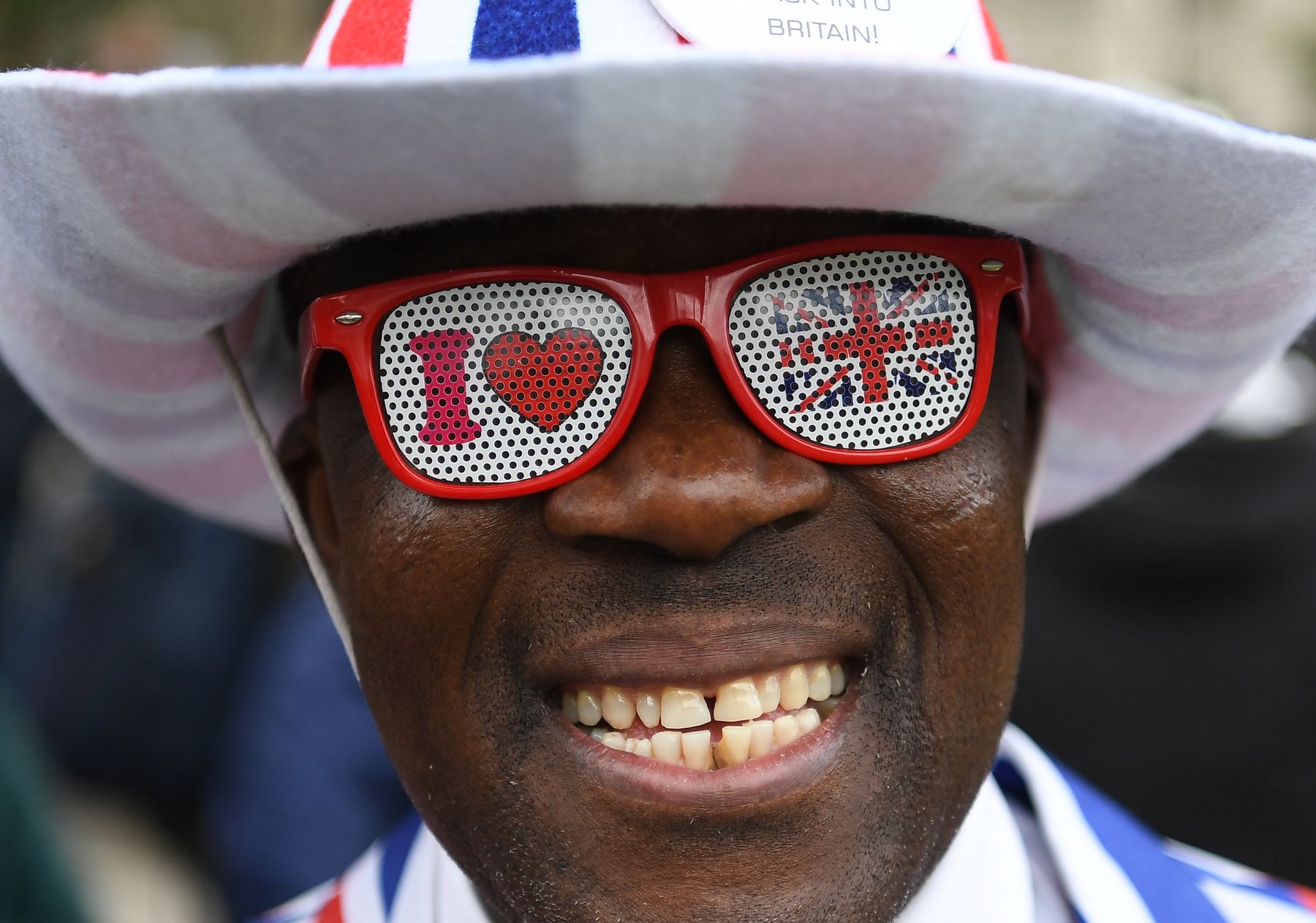
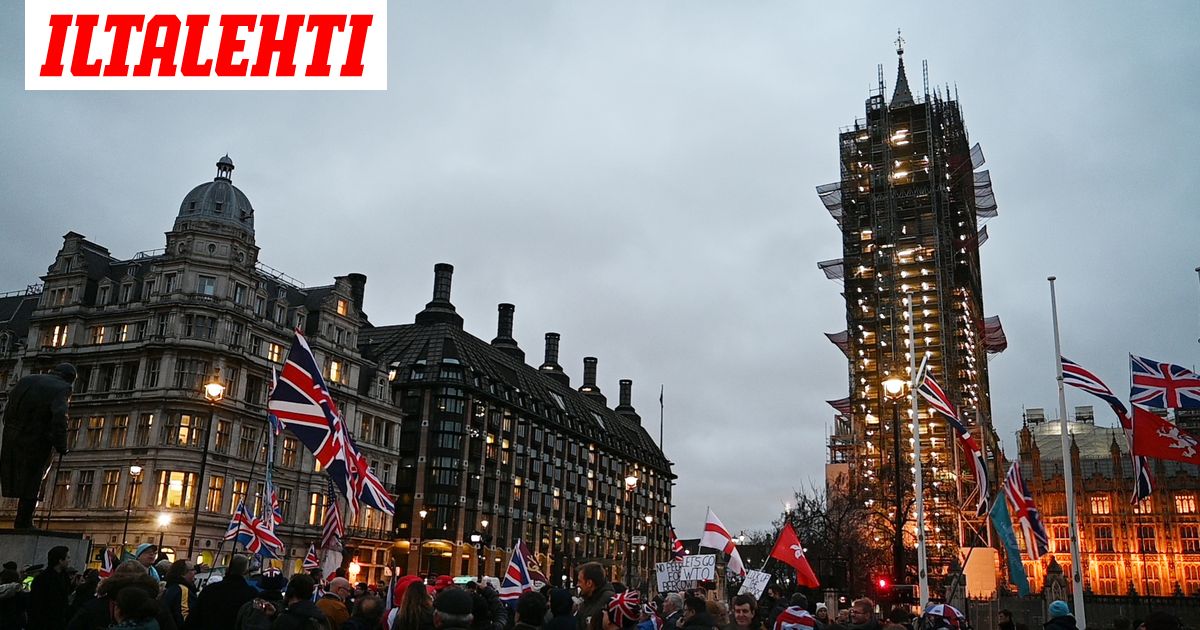
Britannia erosi EU:sta
Britannia eroaa Euroopan unionista. Todellinen vääntö on kuitenkin vasta alkamassa.


Britannia erosi EU:sta
Britannia eroaa Euroopan unionista. Todellinen vääntö on kuitenkin vasta alkamassa.www.iltalehti.fi
En uskonut eron toteutuvan. Olin väärässä paljolti Johnsonin jääräpäisyyden vuoksi. Kunnia hänelle. Kaiken "brexit on putini trollien juttua" ja muun sekoilun jälkeen oli hienoa nähdä että kansa selkeästi kumosi vaaleissa höpöjutut.
Onko brexit hyväksi vai haitaksi näkyy vasta parin vuosikymmenen jälkeen. Kommentteja varsinkin negatiivisista seurauksista tulee varmasti jo huomenna "pitkiä jonoja rajalla", "ihmiset eivät pääse liikkumaan" jne.
Mutta hyvää tai huonoa. Kansa on puhunut ja kansa elää sen kanssa. Tämä on aitoa demokratiaa. Sitä ei voi kuin ihailla oli syistä ja seurauksista mitä mieltä vain.
Luottaisin tuohon poliitikkoon enemmän, kuin suurimpaan osaan suomalaisisata poliitikoista. Yleensä englesmanneihin en luottaisi tippaakaan.Minen ostaisi edes uutta autoa tuolta mieheltä.
Coffee Man
Respected Leader
Kuuluisiko osa kunniasta kuitenkin Corbynille, jopa isompi osaOlin väärässä paljolti Johnsonin jääräpäisyyden vuoksi. Kunnia hänelle.

Panssari Salama
Respected Leader
Onnea "itsenäiselle" UK:lle. Mitäs seuraavaksi, kun kaikkia ongelmia ei enää voikaan ulkoistaa EU:n syyksi. Ihan omat poliitikot vastuussa maan menosta. Niin kuin tähänkin asti.
Panssari Salama
Respected Leader
Nämä uhkakuvat liittyivät mahdolliseen kovaan Brexitiin, joka oli ihan aito mahdollinen lopputulema sekin. Näinhän ei käynyt, vaan vanhoilla sopimuksilla jatketaan 2020 loppuun, ja UK:lla siten loppuvuosi aikaa neuvotella EU:n kanssa mm. näistä asioista.Onko brexit hyväksi vai haitaksi näkyy vasta parin vuosikymmenen jälkeen. Kommentteja varsinkin negatiivisista seurauksista tulee varmasti jo huomenna "pitkiä jonoja rajalla", "ihmiset eivät pääse liikkumaan" jne.
Palataan siis asiaan uuden vuoden 2021 hujakoilla. Toivottavasti asiat pystytään sopimaan parhaiten päin.
Lapinukko
Respected Leader
Palataan siis asiaan uuden vuoden 2021 hujakoilla. Toivottavasti asiat pystytään sopimaan parhaiten päin.
Eiköhän. Iso-Britannia on edelleen osa Eurooppaa. Miksi pitäisi olla pessimisti. Sveitsikin on tunnetusti Euroopassa ja Norja myös.
Historiantutkijan ajstuksia Britanniasta:

 yle.fi
yle.fi
Nokkapokka alkaa:

 www.is.fi
www.is.fi
Thamesin Singapore, sääntelemätön vapaakauppasaari vai kansallisen kapitalismin Britannia? Maa kulkee tuntemattomaan tulevaisuuteen
Historioitsijan mielestä brexitiä ajanut eliitti ei ole ymmärtänyt maailman tai Britannian talouden todellista luonnetta.
Nokkapokka alkaa:

Lehti: Boris Johnson haluaa täydet rajatarkastukset kaikille EU:sta tuotaville tuotteille
Vaatimus lisää painetta EU:n ja Britannian välisiin kauppaneuvotteluihin.
The Rock on jälleen kerran kivi kengässä:

 www.theguardian.com
www.theguardian.com

Brexit trade talks: EU to back Spain over Gibraltar claims
Territory’s economy at risk unless UK reaches agreement with Madrid over ownership
Panssari Salama
Respected Leader
Hyvä kirjoitus The Timesissa Brexitiin heräilevästä Iso-Britanniasta: samat haasteet edessä.
TL;DR:
Enough arguing the toss over Brexit. It’s done now; it was surely a mistake; we who believed that and still do, did our utmost to persuade politicians and fellow citizens to think again and we failed. But some of us also argued that leaving the EU wouldn’t be the end of the world. That, too, I still believe; and the job of politics now is to re-set expectations.

 www.thetimes.co.uk
www.thetimes.co.uk
TL;DR:
Enough arguing the toss over Brexit. It’s done now; it was surely a mistake; we who believed that and still do, did our utmost to persuade politicians and fellow citizens to think again and we failed. But some of us also argued that leaving the EU wouldn’t be the end of the world. That, too, I still believe; and the job of politics now is to re-set expectations.

Boris Johnson should be straight with us about our prospects after Brexit
The Big Ben bongs we won’t be hearing tonight …BONG. Welcome to the new vassalage. BONG. Will it be to the EU or the USA?BONG. Fisheries or financial services?BONG. Straight bananas or chlorinated chicken?BONG. US trade commissioners or the ECJ?BONG. British taxes on Google or US tariffs on Jaguar L
Boris Johnson should be straight with us about our prospects after Brexit
The PM could help himself and the nation by explaining calmly which expectations can be met and which cannot
Matthew Parris
Saturday February 01 2020, 12.00am GMT, The Times
Share
https://www.thetimes.co.uk/article/a948a392-4448-11ea-a083-1ec392b38124?utm_source=newsletter
https://twitter.com/intent/tweet?te...us-about-our-prospects-after-brexit-t3bl8smrd
https://www.facebook.com/sharer/sha...us-about-our-prospects-after-brexit-t3bl8smrd
https://www.thetimes.co.uk/article/a948a392-4448-11ea-a083-1ec392b38124?utm_source=newsletter
Save
https://www.thetimes.co.uk/article/a948a392-4448-11ea-a083-1ec392b38124?utm_source=newsletter
The Big Ben bongs we didn’t hear last night …
BONG. Welcome to the new vassalage.
BONG. Will it be to the EU or the USA?
BONG. Fisheries or financial services?
BONG. Straight bananas or chlorinated chicken?
BONG. US trade commissioners or the ECJ?
BONG. British taxes on Google or US tariffs on Jaguar Land Rover?
BONG. More Romanians or fewer cabbage fields?
BONG. Fewer nurses or more Commonwealth immigration?
BONG. No European health insurance cards or more health tourists?
BONG. Or something in between?
BONG. Nothing has changed.
We do not wake up to a new world tomorrow. We wake to the same world. Welcome back to the old, hard choices, the same choices we’ve faced since 64 years ago at Suez when the Americans smacked us in the mouth: a post-imperial power with dreams of exceptionalism and a tired economy, troubled by low productivity and a culture of health and welfare entitlement that we struggle to afford.
Enough arguing the toss over Brexit. It’s done now; it was surely a mistake; we who believed that and still do, did our utmost to persuade politicians and fellow citizens to think again and we failed. But some of us also argued that leaving the EU wouldn’t be the end of the world. That, too, I still believe; and the job of politics now is to re-set expectations. A bit of a pinch is coming.
Leading the mission should be our new prime minister. I’ve railed mightily against Boris Johnson but believe now that he could prove well suited for the job. He would be good at letting us down pleasantly, though has qualities that could trip him.
A fellow Fleet Street columnist, Rafael Behr, wrote this week that during the last election Johnson’s winning formula was “to downgrade the promise of Brexit from reward to relief”. That was my impression on the doorstep. Relief was within Johnson’s power to deliver and he had in his hand a piece of paper — his draft withdrawal agreement — to prove it. “Get Brexit Done” was a killer phrase. He could stop the pain. And in a way he has. Even I can feel it.
This was like going to the dentist with a raging toothache: first, please, the novocaine and afterwards we can discuss the extraction, the filling and the cost. So too with Brexit. The pain has gone, but what next?
There’s a school of thought among many former Remainers that we’re in for a big shock this year. Expectations (they warn) will be dramatically dashed as Brussels shows its hand, or Trump gives us the finger, or both. “Alone in the world! What a blunder we’ve made,” the nation will wail.
I doubt this. More likely is a slow-growing realisation that the big new trade deals it’s hoped a “global’ Britain could strike beyond Europe are for the middle term at best; and meanwhile we must reach accommodations with the EU (“interim” accommodations, we’ll be told) that keep us fairly closely aligned with the single market and customs union. We’ll pay a bit for this and there will be no rewards at all, but we’ll survive: nobody wants to bankrupt us. For former Remainers, then, not yet the apocalypse. For Brexiteers, not yet the sunlit uplands.
If I’m right, then expectations here at home will have to be managed down; and they surely can be.
To the extent that Johnson thinks about such questions I would expect he anticipates this, for my guess is that beneath the outward exuberance lurks a deeply pessimistic soul. But his instinct will be to pump up the promises and leave reality to talk us back down. One by one and softly, expectations will be lowered by boring reports about sectoral progress (or lack of it) in trade negotiations with the EU and, as to those new global trade deals, the absence of news. In the meantime Boris will keep burbling sunnily about how great it’s all going to be, and taking care to keep himself and his cabinet off BBC Radio 4’s Today programme.
But the instinct to duck is dangerous. Silence when things are steady can look strong; silence when they go wrong looks panicky. It reckons without events (a car manufacturer closes; Britain enters recession; unemployment rises … whatever). It reckons, too, without the animal spirits of parliamentary Brexiteers, keeping their counsel at present but who really do expect, after the relief, the reward. And it reckons without the populace, who feel they’ve been promised something big. General jollity, at which Johnson is very good, can flip suddenly from being lovable to being infuriating.
I don’t think Boris is at heart a joker but his instinct to avoid crunch encounters may be about to let him down: for if the political weather turns then he will appear to have been discredited and there may be no coming back from that. Right against his instincts, I believe, he needs to get his excuses in first. He has to level with us: explain in calm and serious terms that there will be no quick dividend from Brexit, and that hard choices, and often compromise choices, will have to be made.
For this he’ll need a new tone and some very good speeches, carefully prepared. Though he has made his way by talking, Johnson isn’t actually very eloquent. He has a real genius for verbal exuberance and his talent to amuse equips him wonderfully to gain our sympathetic attention. But once he has it, one senses he doesn’t quite know what to do with it. He’s not a natural explainer and does not easily distil a rational argument into clear language.
What’s needed, soon, is a grave fireside chat. It would go deep with us, I think, and be remembered with respect in more difficult times to come. The prime minister might start with John Keats’s ditty about a boy who thought that if he only went somewhere different, the eternal verities might change. But …
“… he found
That the ground
Was as hard,
That a yard
Was as long,
That a song
Was as merry,
That a cherry
Was as red,
That lead
Was as weighty,
That fourscore
Was as eighty,
That a door
Was as wooden
As in England.
So he stood in his shoes
And he wonder’d,
He wonder’d,
He stood in his
Shoes and he wonder’d.”
Eiköhän tuosta vielä kunnon flaidis kehity...

 www.theguardian.com
www.theguardian.com

Brexit day one: Johnson goes for broke with hardline trade deal
Prime minister pledges to make no concessions to EU as he salutes ‘a turning point in the life of our nation’
Coffee Man
Respected Leader
Teemme päätökset tieteellisin perustein. Poliittisesta ajattelusta piittaamatta. Ei mainosmiehiä, eikä käärmeöljykauppiaita.
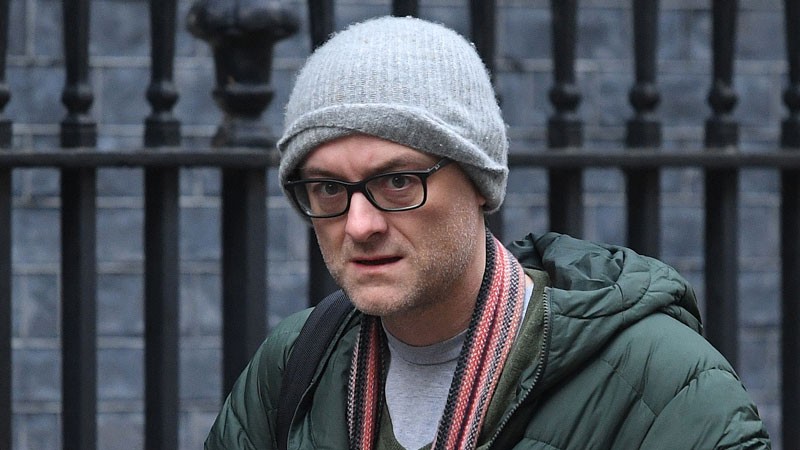
Me hakkeroimme poliittisen järjestelmän, menemme takaovesta. Uudelleenohjelmoimme sen. Te puhutte julisteista. Minä muutan politiikan koko matriisin.


 areena.yle.fi
areena.yle.fi
Kun kaksi miljardia ihmistä syöttää dataa koko ajan, käyttäytyminen alkaa olla ennustettavaa.
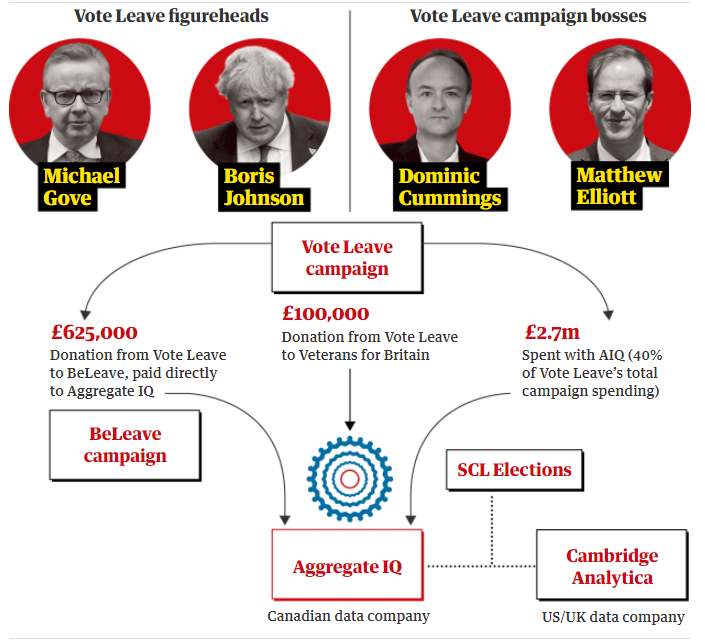

Me hakkeroimme poliittisen järjestelmän, menemme takaovesta. Uudelleenohjelmoimme sen. Te puhutte julisteista. Minä muutan politiikan koko matriisin.


Brexit - temppu ja miten se tehtiin
Britannia äänesti EU-erosta heinäkuussa 2016. Tiedämme toki kuka voitti, mutta emme ehkä tiedä miten. Kampanjaa Brexitin puolesta ja vastaan käytiin veren maku suussa, ja sen tiimellyksessä surmansa sai yksi ihminen. Brexit jakaa edelleen Britannian kansaa ja poliittista järjestelmää...
Kun kaksi miljardia ihmistä syöttää dataa koko ajan, käyttäytyminen alkaa olla ennustettavaa.

Viimeksi muokattu:


